Minister of Guidance: Center for Revolutionary Hymns and Songs to be set up / Pray for “Mehrdad Kazemi” singer and chemical veteran
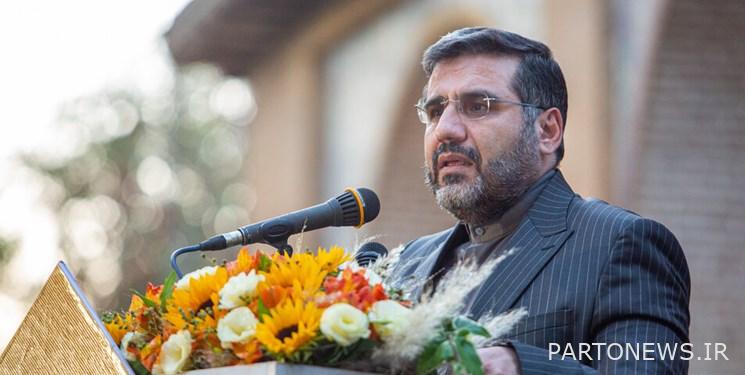
Fars News Agency – Music Group – Alireza Sepahvand: The ceremony and memorial of “earthen instruments” was held on Friday night – December 25 – in the presence of Mohammad Mehdi Ismaili, Minister of Culture and Islamic Guidance, at Tehran’s Vahdat Hall.
At the beginning of the program, Mahmoud Shaloui, Acting Deputy Minister of Arts of the Ministry of Guidance, celebrated Basij Week and said: “Basij Week is a reminder of the unforgettable memories of epic creators and brave men who will forever remain in our history.” In the meantime, committed, religious, idealistic and idealistic artists were and are with the hard-working and jihadist warriors who helped them step by step. They made the atmosphere of the front and the war so lively with their spiritual music that they removed the tiredness from everyone and caused more strength and power for our warriors. I respect the position of all the precious artists, of those artists who in those difficult times, in those days when it was difficult everywhere, but the excitement and love among the people had spread so much that they were not willing to leave the warriors alone. Let me send greetings.
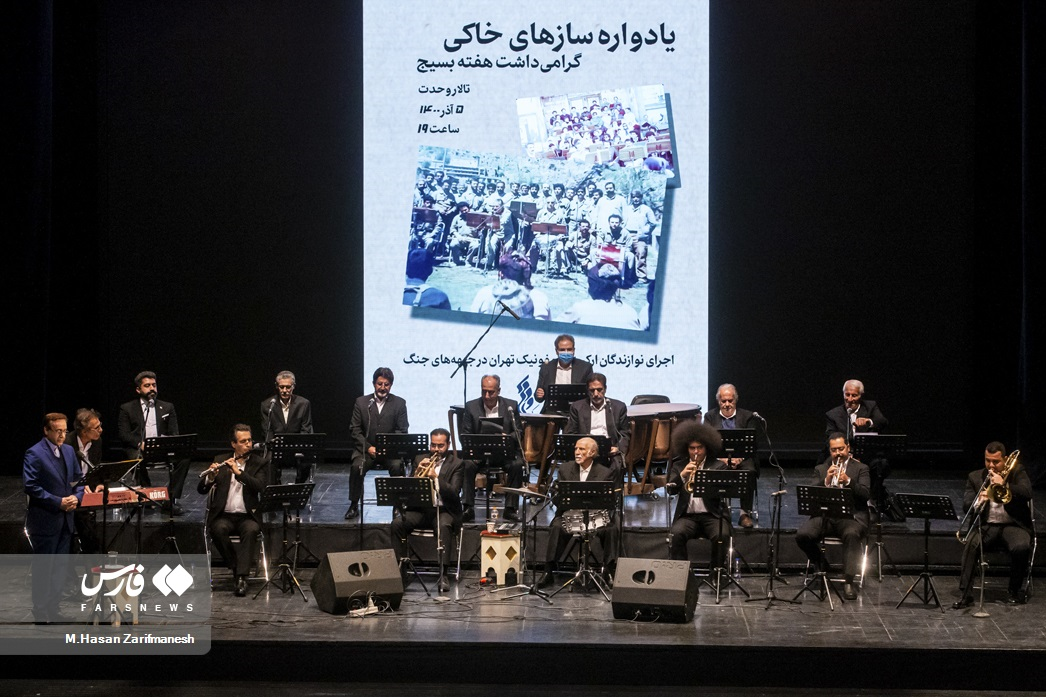
He added: “Today, we are happy that a group of these dear artists are among us.” Artists whose instruments and songs you are familiar with, and you will see and hear more from them in this program, and I hope that along with such artists, we will have many artists in the scenes of the Islamic Revolution.
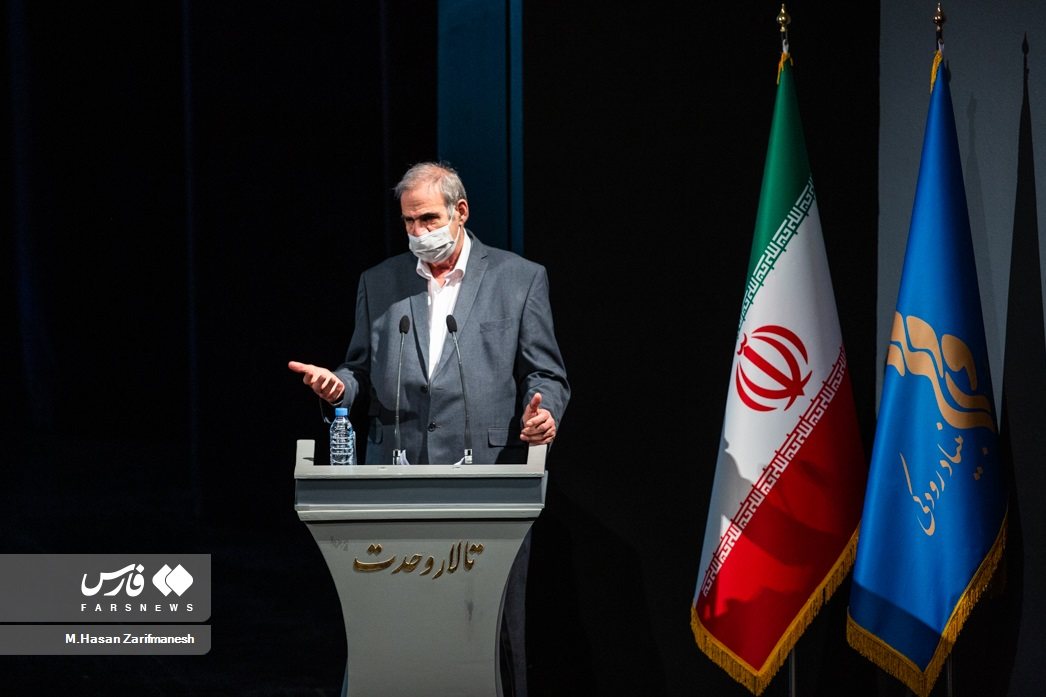
Pray for Mehrdad Kazemi, whose lungs were damaged in the city of Halabja
The next speaker at the event was Mohammad Reza Jafari Behnam, the former sound engineer of the Tehran Symphony Orchestra, who was active on the fronts during the days of the Holy Defense. He said at the ceremony: “In 1981, we had a continuous presence on the fronts with a group of 26 people, and many commanders at the time of the war called us the morale group.” We were present wherever there was to be an attack. Certainly we did not catch up with the fighters, we were only able to be on the front for about 36 months during the eight years of holy defense. Here, too, I ask you to pray for the health of my dear friend Mehrdad Kazemi, whose lung was damaged in the city of Halabja, by mentioning Salavati. He really wanted to be here during the three years that the earthworks program has been running, but unfortunately he can’t and he is hospitalized.
Another time when we were returning to Tehran, one of the dear commanders of the Islamic Revolutionary Guard Corps was presenting a report, and I saw that Hajj Qasim, although listening to the report, looked at me sharply and said, “Sadegh, if I become a martyr, leave a stone unturned for me.” »
* Haj Qasim said wish me to testify too
In the continuation of this program, it was the turn of Sadegh Ahangaran, the constant praiser and voice of self-sacrifice and devotion. Islam and holy defense. We have nothing and everything we have is from the dear martyrs. If we want to gather all the characteristics and worthy behaviors of the dear Basijis in one place, without a doubt, one of these centers is Haj Qasem Soleimani. He was one of the proud commanders of Islam who always had a passion for martyrdom. He was always restless for martyrdom and this restlessness became more and more after the martyrdom of Ahmad Kazemi. Haj Qasim had many characteristics and it can be said that he was the only one who had what was good for everyone. Martyr Soleimani always had courage, humility, intelligence, devotion to the Ahl al-Bayt and the Islamic Revolution, compassion, devotion to the people. But he had an important characteristic, he always wanted a connection and he wanted this connection with tears. Tears that were a prominent feature of Haj Qasim. I always saw that every time Haj Qasim’s friends were martyred one by one, this impatience and desire to connect increased in him.
Minister of Guidance: Many memories of our childhood and adolescence have been formed with these pleasant voices. These masters reminded us, who were in the holy defense in childhood and early adolescence, of the memories of being sent to the fronts and the burial of the bodies of the martyrs that we remembered with these songs.
He continued by mentioning a memory of Haj Qasem: I remember very well when we had traveled to Hamedan with Haj Qasem to commemorate the martyrs. “Testify.” Another time when we were returning to Tehran, one of the dear commanders of the Islamic Revolutionary Guard Corps was presenting a report, and I saw that Hajj Qasim, although listening to the report, looked at me sharply and said, “Sadegh, if I become a martyr, leave a stone unturned for me.” ». The last meeting I had with Hajj Qasim was on the night of the twenty-first of the month of Ramadan near the royal shrine of Hazrat Roghayeh. I had a plan for that, which fortunately turned out to be a good one. It was at this time that I was informed that Hajj Qasim was also present at the shrine. Let me also explain that at that time, the doors of the shrine were closed at 10 pm, but that night, on the occasion of the night of the twenty-first month of Ramadan, it was decided to close the doors at 12 noon. And the doors closed at 12 o’clock and I went to the place where God was present for breakfast until I was told that Hajj Qasim has been in the room since the beginning of your program but he could not attend the program. Interestingly, no one was in the shrine and I, after greeting this great martyr, said to me: Sadegh, do not cling to me tonight. I said: Why? I felt good about the program. After a few minutes, he said to me: If you are not tired, can you read for 10 minutes? I gladly accepted.
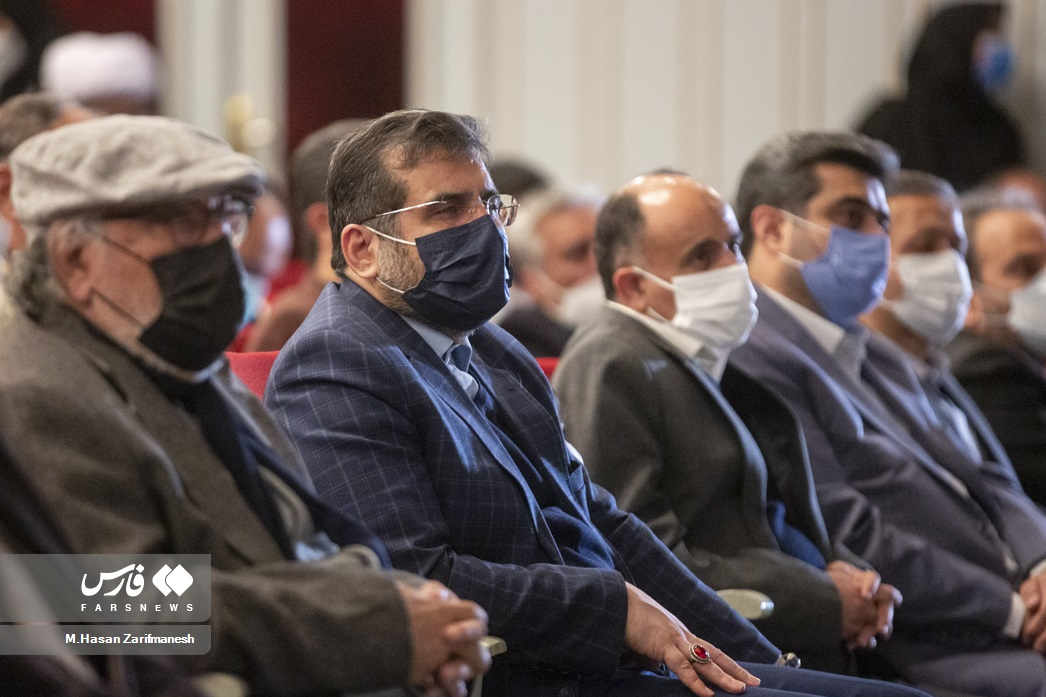
At the end of his speech, the blacksmith said: That night Hajj Qasim had put his head on the shrine and I was in the service of Hajj Qasim for 40 minutes in addition to reciting the Ashura pilgrimage and the ceremony related to the night of Ghadr. But even after the end of the program, we could see that Hajj Qasim was still crying until after a while he calmed down and I could still see the passion of martyrdom in Hajj Qasim.
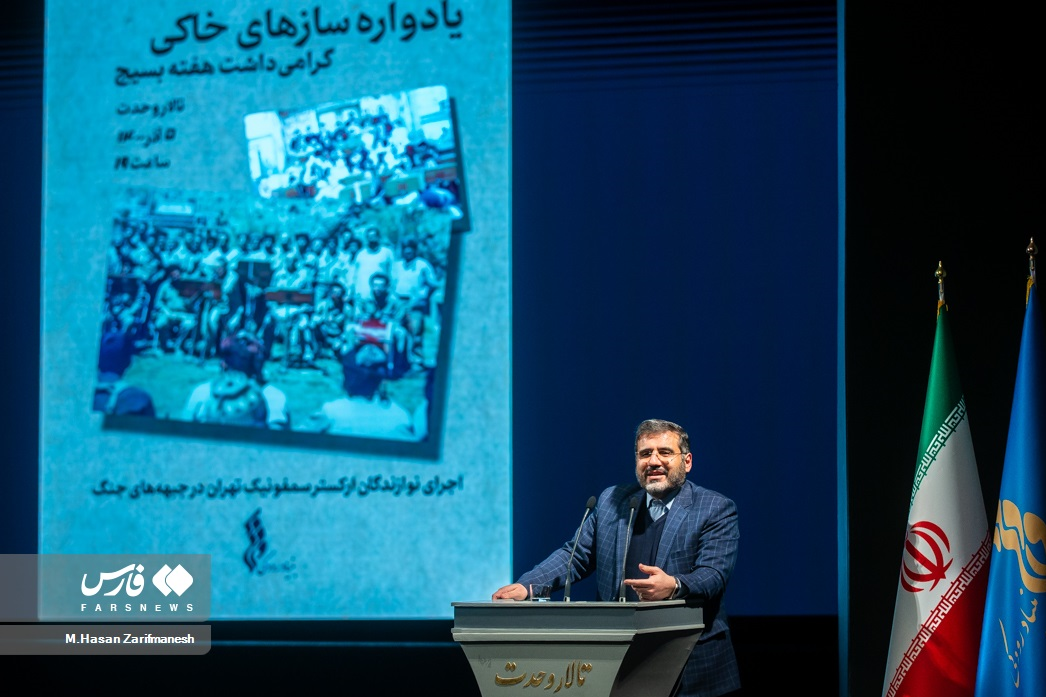
* Minister of Guidance: I complain about those who were unaware of these large investments
Mohammad Mehdi Esmaili, Minister of Culture and Islamic Guidance, in the final part of the program, which ended with a ceremony of appreciation and awarding prizes to the veteran artists who were present in the right-against-wrong fronts, while commemorating the martyrs and appreciating the Basij artists, said: Tonight We were in the service of great people whose memory is beautiful and pleasant to us, as if many of our childhood and adolescence memories were formed with these pleasant voices. These masters reminded us, who were in the holy defense in childhood and early adolescence, of the memories of being sent to the fronts and the burial of the bodies of the martyrs that we remembered with these songs. This is a feeling that is present in all of us. At the Ministry of Culture and Islamic Guidance, all our efforts in the new era are to add to our rich resources. These are the great capacities that created the culture of sacred defense and martyrdom for us.
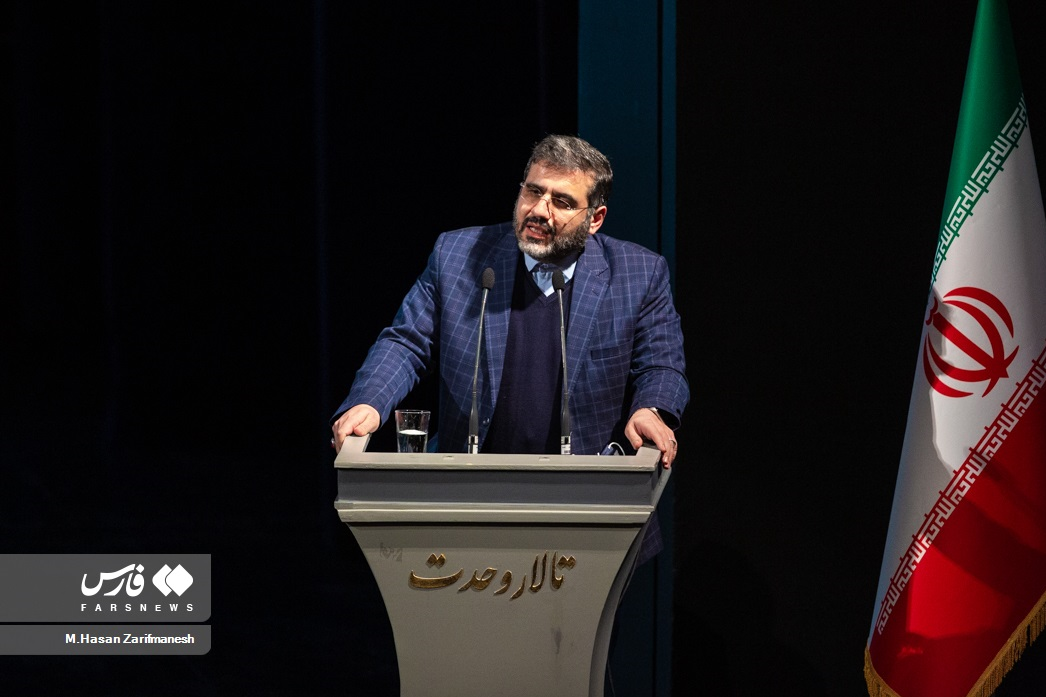
* We will soon establish a center for revolutionary songs and melodies
The Minister of Guidance added: “Many artists who created excitement with their presence on the battlefields at that time created great epics.” I complain to those who were unaware of these great investments, these loved ones created works that are truly unique. Everyone who hears these works, apart from the feeling they get from these works, receives lofty meanings based on the spirit of jihad and martyrdom. In this regard, we try to preserve this heritage and use the great capacity to create a new era in the promotion of poetry and music in our country. These require a clear plan that has been created in the Deputy Minister of Arts, and according to the plans that have been made, we will soon establish a center for revolutionary songs and melodies to revive this valuable look.
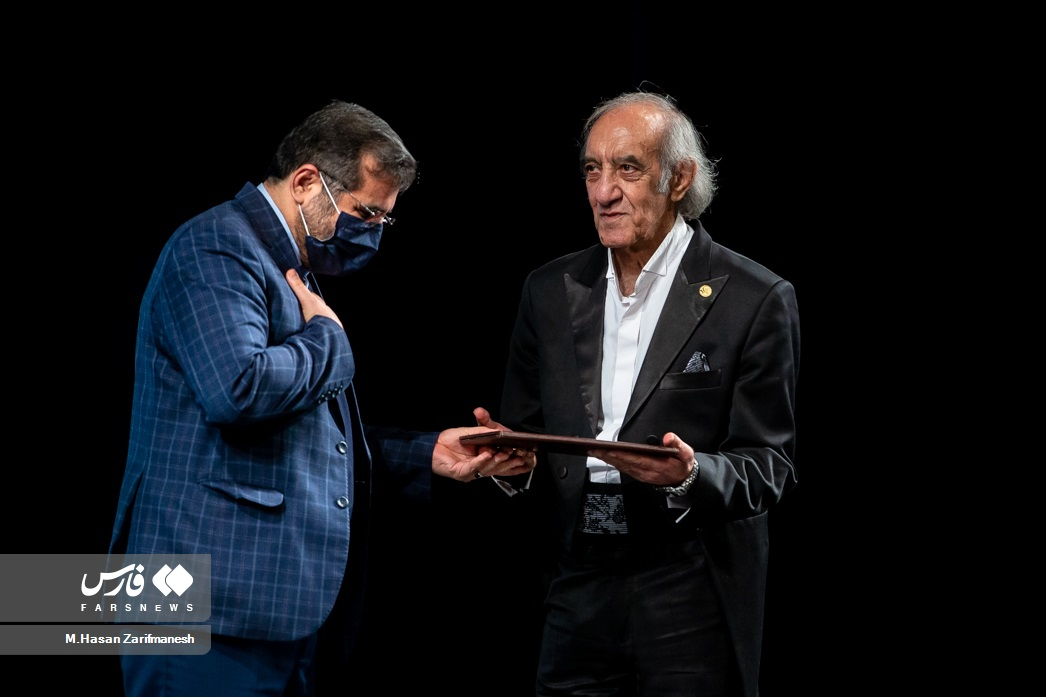
At the end of his speech, he added: “Another big step we took was based on the fact that in this new course, we asked our friends to provide free art education for the applicant students in the deprived areas of the country.” Accordingly, my friends have cooperated in the artistic deputy and the centers of mosques, and according to the latest statistics, 17,000 people have registered so far, many of which have been in the field of anthems and songs of the revolution. Our goal is to be able to activate cultural and artistic capacities in a proud Iran, whose soil is full of courage.
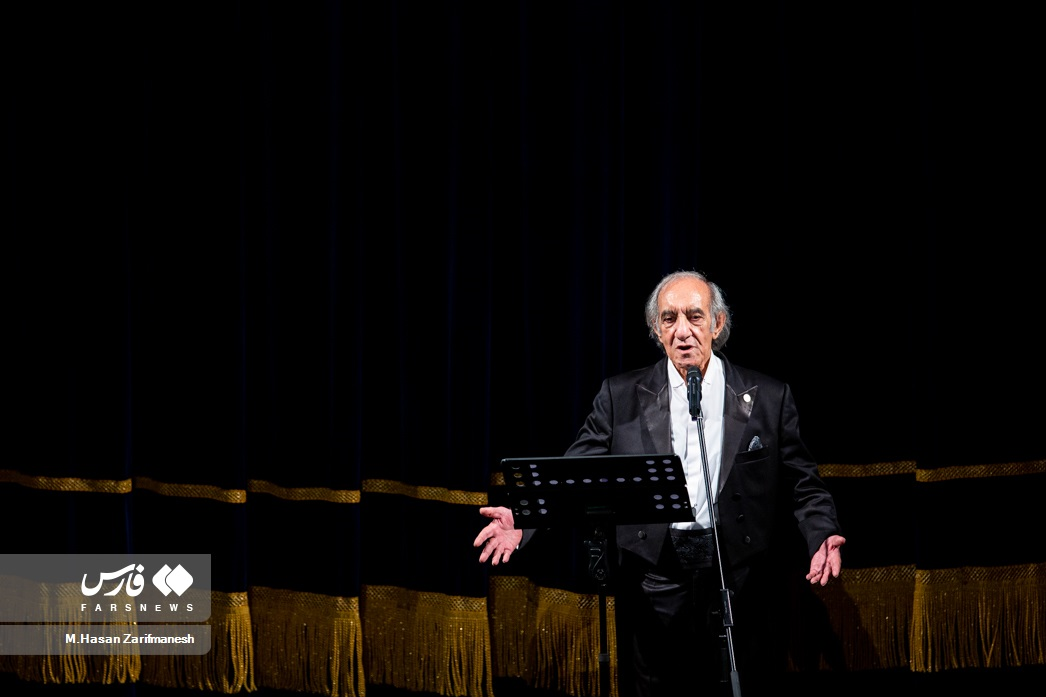
In the final part of the ceremony, veteran artists such as Sadegh Ahangaran, Esfandiar Gharabaghi, Mohammad Ali Golriz, Mohammad Reza Jafari Behnam, Karim Karimi, Mohammad Reza Panahinejad, Babak Mirdadian, Ali Zarabi, Siamak Karimpour, Nasser Rahimi, Reza Sanatinejad, Mohammad Reza Safi, Hassan Zohri, Jahangir Zamani, Ahmad Aziz, Massoud Aali, Shahrokh Shirdost, Behrooz Eslami, Homayoun Rahimian, who were present on the right-against-wrong fronts during the holy defense and inspired the heroes of Iran with their art, plaques of appreciation and gifts It was presented by Mohammad Mehdi Ismaili, Minister of Culture and Islamic Guidance, and Mahmoud Shaloui, Acting Deputy Minister of Arts.
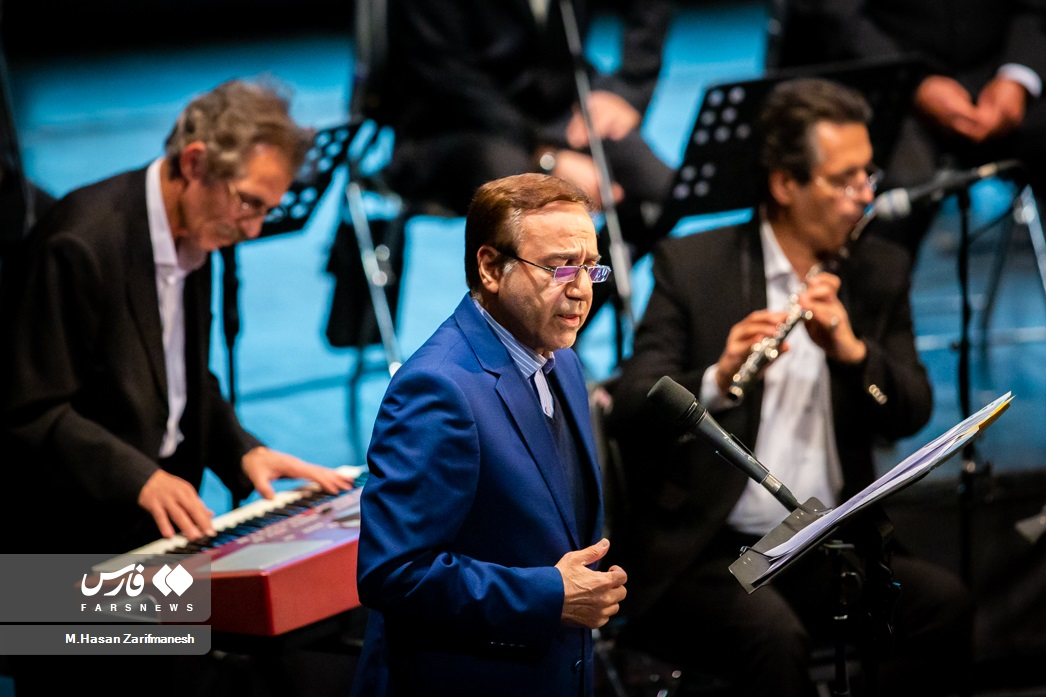
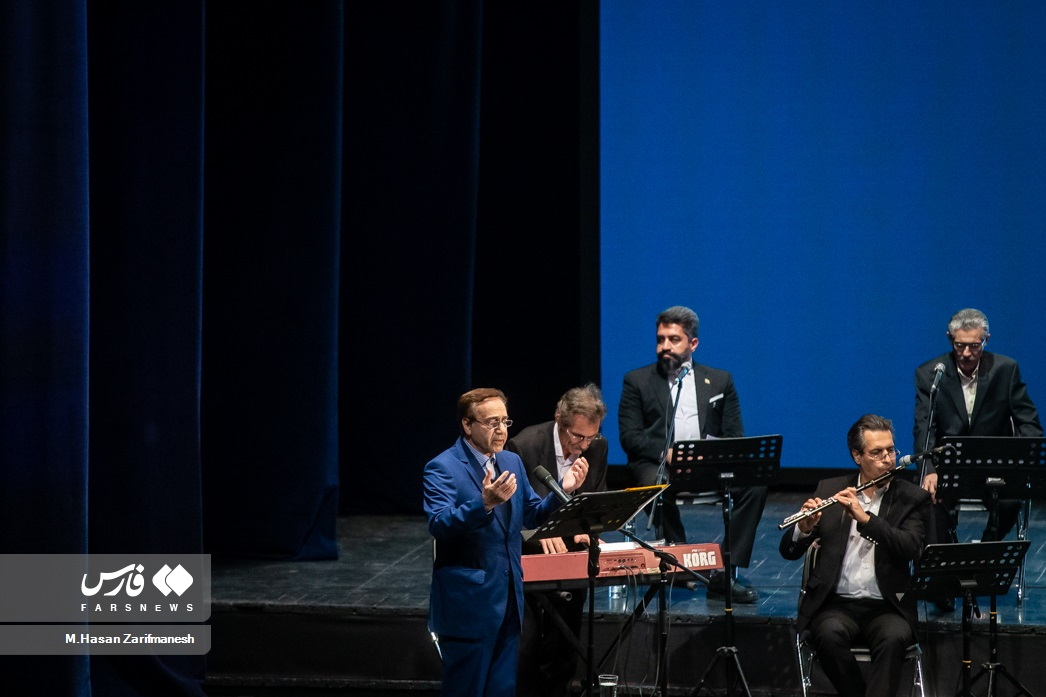
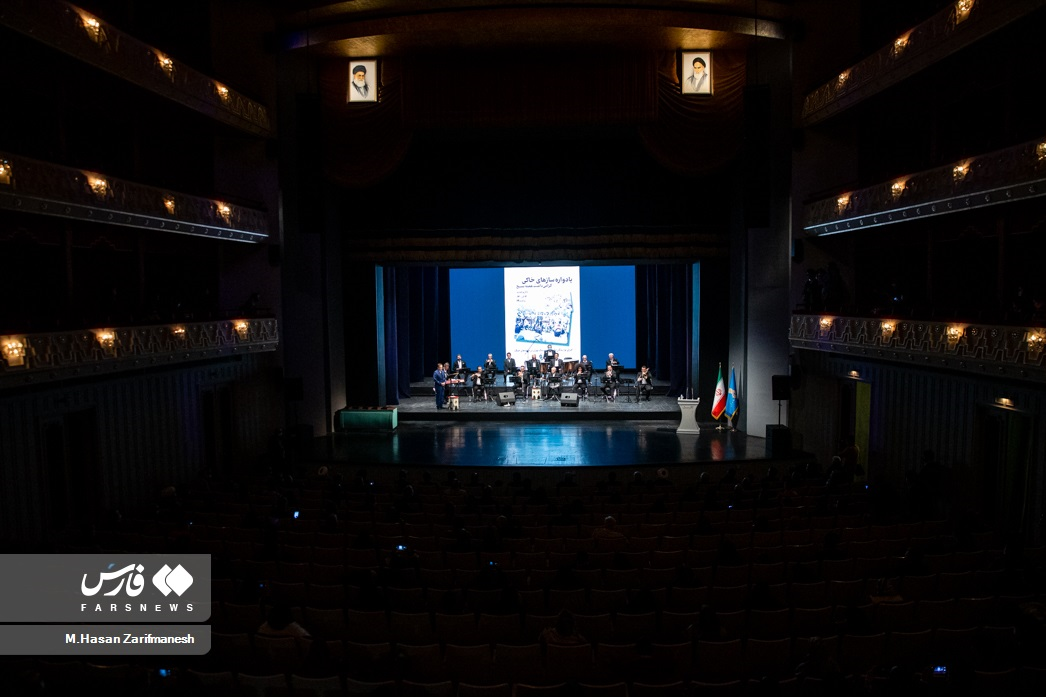
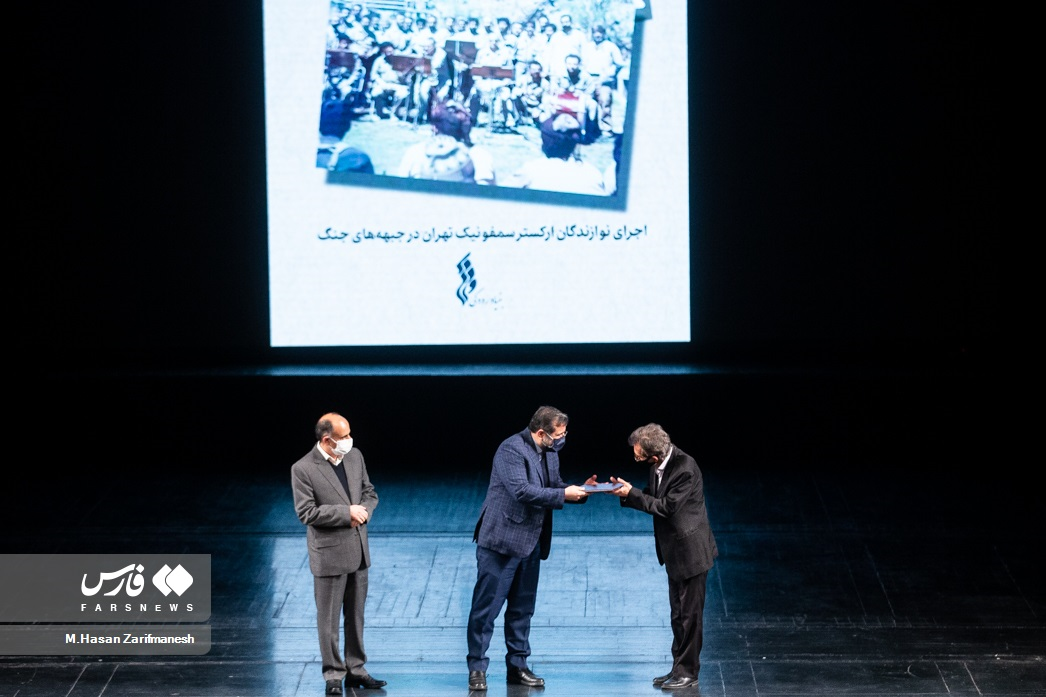
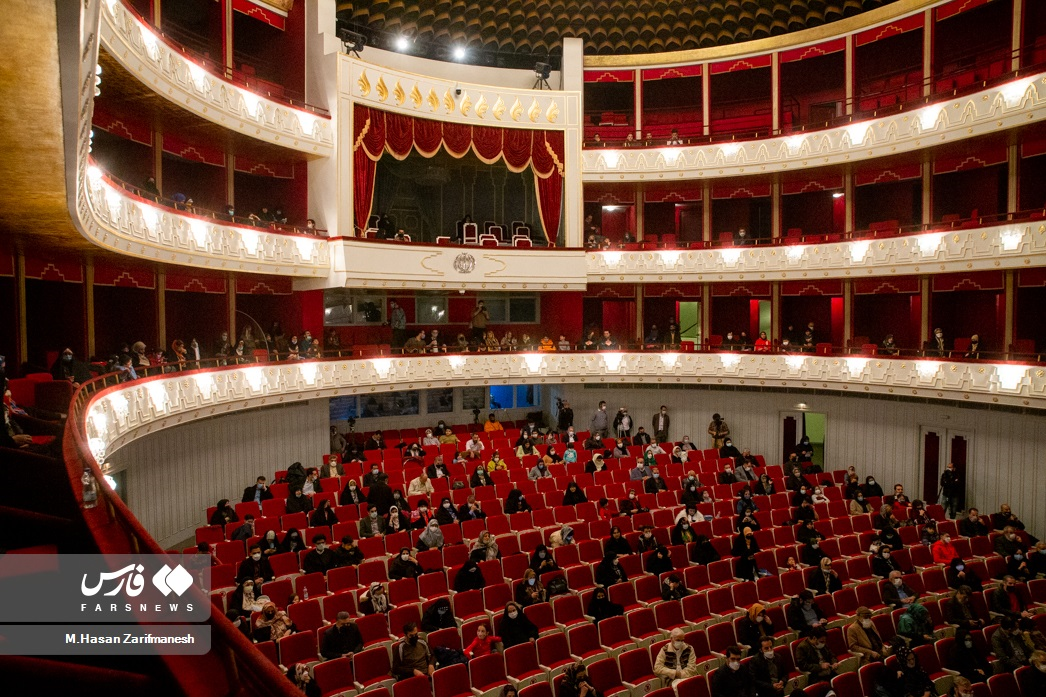
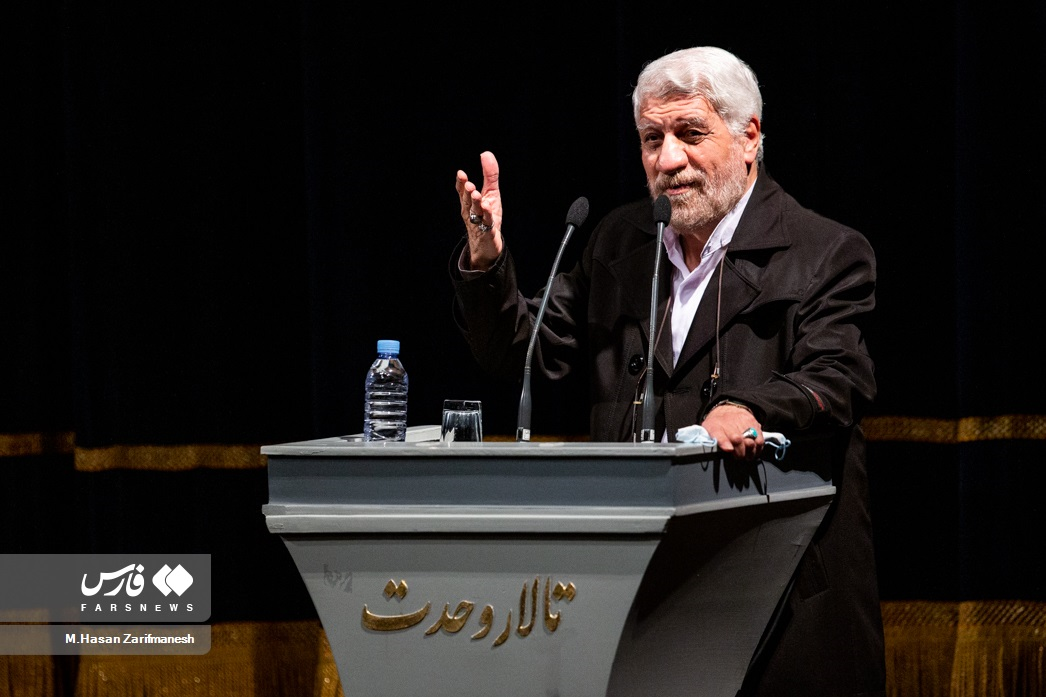
End of message /
You can edit this post
Suggest this for the front page
.

